Ave Christus Rex!
The Feast of Christ the King
The Feast of Christ the King
Ecce Homo!
"Behold the Man!"
"Behold the Man!"
"Then therefore, Pilate took Jesus, and scourged him. And the soldiers platting a crown of thorns, put it upon his head; and they put on him a purple garment. And they came to him, and said:
Hail, King of the Jews;
and they gave him blows. Pilate therefore went forth again, and saith to them: Behold, I bring him forth unto you, that you may know that I find no cause in him. (Jesus therefore came forth, bearing the crown of thorns and the purple garment.) And he saith to them:
Behold the Man!"
[John 19:1-5]
Hail, King of the Jews;
and they gave him blows. Pilate therefore went forth again, and saith to them: Behold, I bring him forth unto you, that you may know that I find no cause in him. (Jesus therefore came forth, bearing the crown of thorns and the purple garment.) And he saith to them:
Behold the Man!"
[John 19:1-5]
Regnavit a ligno Deus
"God hath ruled us from a tree"
[Vexilla Regis, Venantius Fortunatus]
"God hath ruled us from a tree"
[Vexilla Regis, Venantius Fortunatus]
 Christos Pantokratoros (Christ, ruler of all), ancient Byzantine ikon.
Christos Pantokratoros (Christ, ruler of all), ancient Byzantine ikon.Rex regum et Dominus dominantium
"King of kings and Lord of lords"
[Revelation 19:16]
"King of kings and Lord of lords"
[Revelation 19:16]
Dignus est Agnus qui occisus est, accipere virtutem, et divinitatem, et sapientem, et fortiudinem, et honorem. Ipsi gloria et imperium in saecula saeculorum. Amen.
[Revelation 5: 12, 13, Introit for the Mass of Christ the King]
"Worthy is the Lamb that was slain to receive power, and riches, and wisdom, and strength, and honour, and glory, and blessing...Blessing, and honour, and glory, and power, be unto Him that sitteth upon the throne, and unto the Lamb for ever and ever."
Dixit itaque ei Pilatus: ergo Rex es tu? Respondit Jesus: tu dicis quia Rex sum ego. Ego in hoc natus sum, et ad hoc veni in mundum, ut testimonium perhibeam veritati: omnis qui est ex veritate, audit vocem meam.
[John 18, Gospel for the Mass of Christ the King]
"Pilate therefore said to Him: art Thou a king then? Jesus answered: thou sayest that I am a king. For this was I born, and for this came I into the world, that I should give testimony to the truth. Everyone that is of the truth heareth my voice".
"And I heard as it were the voice of a great multitude, and as the voice of many waters, and as the voice of mighty thunderings, saying, Alleluia: for the Lord God omnipotent reigneth."
[Revelation 19:6]
"And the seventh angel sounded; and there were great voices in heaven, saying, The kingdoms of this world are become the kingdoms of our Lord, and of His Christ; and He shall reign for ever and ever."
[Revelation 11:15]
"And He hath on His vesture and on His thigh a name written, KING OF KINGS, LORD OF LORDS."
[Revelation 19:16]
"For unto Us a Child is born, unto Us a Son is given: and the government shall be upon His shoulder: and His name shall be called Wonderful, Counsellor, The mighty God, The everlasting Father, The Prince of Peace".
[Isaiah 9:6]
The Kingship of Christ is not like the kingship of pagans, heathens, unbelievers and gentiles. The Kingship of Christ is the kingship of a God-King-Priest Who suffers for the sake of his subjects whom He considers to be His very own children.
His crown is the Crown of Thorns, His sceptre is the Reed of humility, His royal cloak is the Purple Robe of suffering, for a royal girdle He is bound with the Bonds of servitude, His white Seamless Garment of purity and integrity is stripped from Him in public, His subjects mock Him, His servants desert Him, His people for whom He suffers and dies reject Him, His path is a Way of the Cross and His greatest work is Crucifixion as a common criminal.
Behold the King Who is a servant to the meanest of His people!
In so suffering, this great King gives us a model for all Christian leadership - paternal, royal, priestly, loving, unselfish, all-suffering, all-giving and all-sacrificing.
This is how all Christian kings and fathers must conduct themselves. For kings are fathers and fathers are kings, their subjects are children and their children are subjects - to be loved, not oppressed; to be formed, not neglected; to be nourished, not abused.
For these little ones, a king and a father sacrifices all he has and, above all, himself.
That is the meaning of Christian kingship, fatherhood and leadership.
"He saith to them: My chalice indeed you shall drink; but to sit on my right or left hand, is not mine to give to you, but to them for whom it is prepared by my Father. And the ten hearing it, were moved with indignation against the two brethren. But Jesus called them to him, and said: You know that the princes of the Gentiles lord it over them; and they that are the greater, exercise power upon them. It shall not be so among you: but whosoever will be the greater among you, let him be your minister:
And he that will be first among you, shall be your servant.
Even as the Son of man is not come to be ministered unto, but to minister, and to give his life a redemption for many."
[Matt 20:23-28]
And he that will be first among you, shall be your servant.
Even as the Son of man is not come to be ministered unto, but to minister, and to give his life a redemption for many."
[Matt 20:23-28]
But how few among us - even among us Christians - understands this meaning of Christian leadership? So few. They still think - like pagans - either that leadership and earthly power are useful means to enrich oneself and lord it over others or else, equally falsely, they think they are merely evil, which is to say the same thing.
It is false.
Others foolishly think that it is degrading to be a servant and better to be rich, powerful, and influential, not so as to be a servant, but so as to serve oneself and oppress and humiliate others.
In fact, kingship or leadership is given by God to men to serve others and to sacrifice oneself for the good of others, as Christ the King did for us. The role of Christian leader is one of suffering and self-sacrifice - not selfishness and self-aggrandisement. It is a most noble and holy calling and we must re-learn to regard it as such.
Woe betide those who use power and rule for themselves and not for others!
And so we must return to the Social Kingship of Jesus Christ...
"19. When once men recognize, both in private and in public life, that Christ is King, society will at last receive the great blessings of real liberty, well-ordered discipline, peace and harmony.
Our Lord's regal office invests the human authority of princes and rulers with a religious significance; it ennobles the citizen's duty of obedience. It is for this reason that St. Paul, while bidding wives revere Christ in their husbands, and slaves respect Christ in their masters, warns them to give obedience to them not as men, but as the vicegerents of Christ; for it is not meet that men redeemed by Christ should serve their fellow-men.
'You are bought with a price; be not made the bond-slaves of men'.
If princes and magistrates duly elected are filled with the persuasion that they rule, not by their own right, but by the mandate and in the place of the Divine King, they will exercise their authority piously and wisely, and they will make laws and administer them, having in view the common good and also the human dignity of their subjects. The result will be a stable peace and tranquillity, for there will be no longer any cause of discontent.
Men will see in their king or in their rulers men like themselves, perhaps unworthy or open to criticism, but they will not on that account refuse obedience if they see reflected in them the authority of Christ God and Man.
Peace and harmony, too, will result; for with the spread and the universal extent of the Kingdom of Christ men will become more and more conscious of the link that binds them together, and thus many conflicts will be either prevented entirely or at least their bitterness will be diminished.
...
28. We further ordain that the dedication of mankind to the Sacred Heart of Jesus, which Our predecessor of saintly memory, Pope Pius X, commanded to be renewed yearly, be made annually on that day."
[Pope Pius IX, Quas Primas, Encyclical letter establishing the Feast of Christ the King, 1925.]



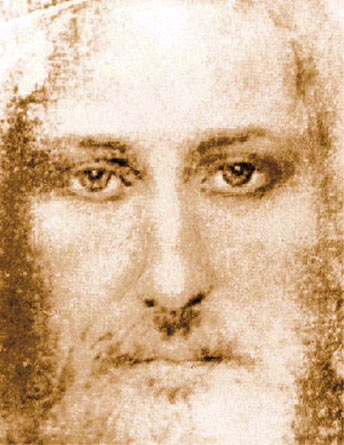











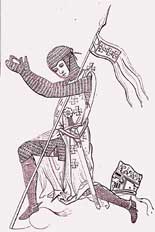
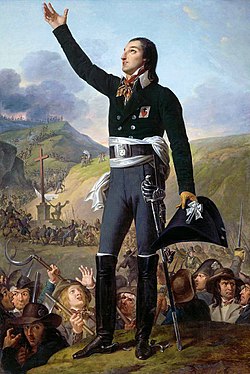


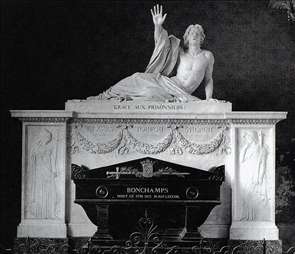


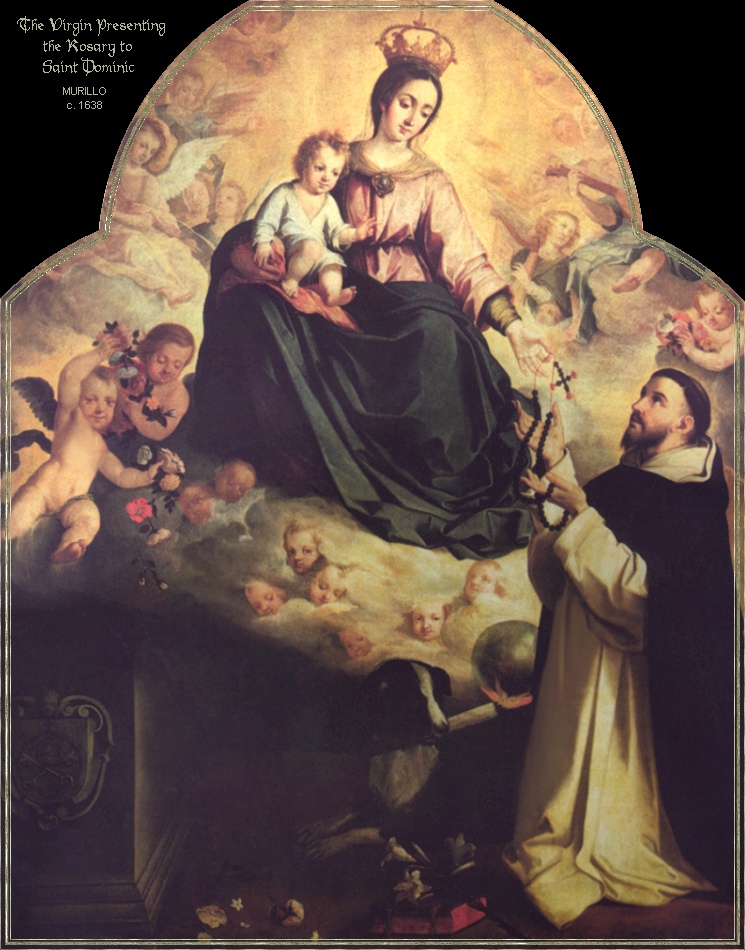

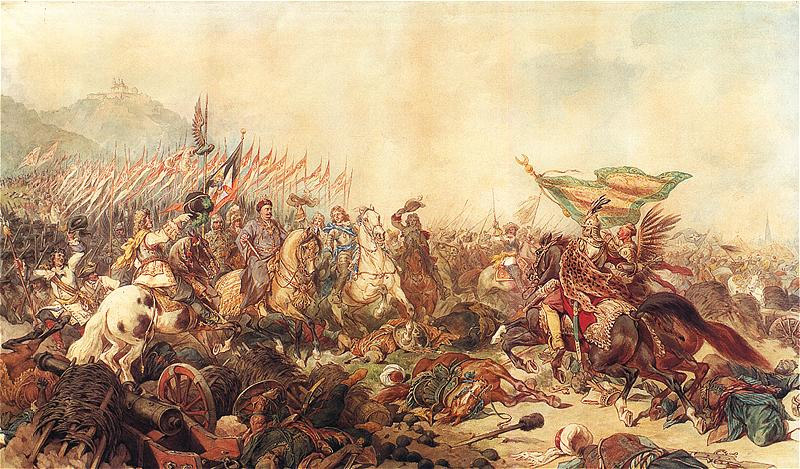















.jpg)


























_-002.jpg/220px-Circle_of_Anton_Raphael_Mengs,_Henry_Benedict_Maria_Clement_Stuart,_Cardinal_York_(ca_1750)_-002.jpg)


